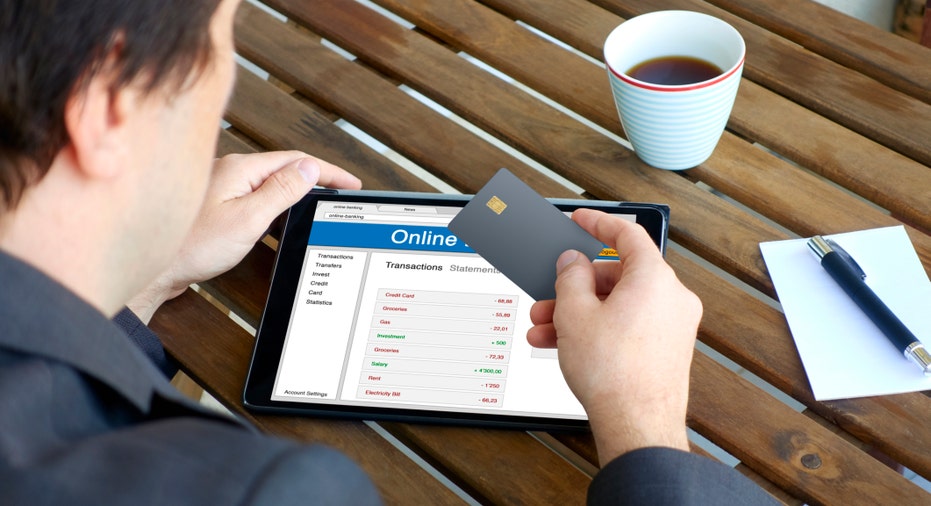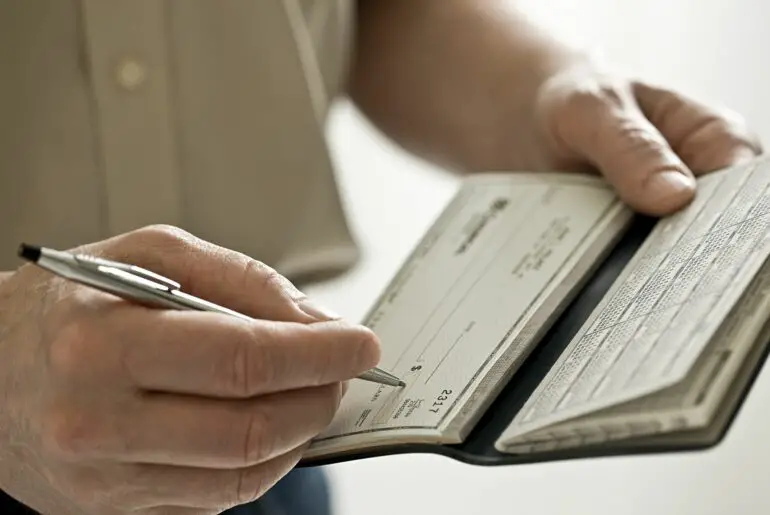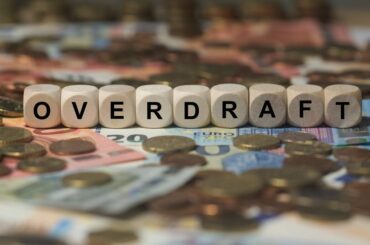Information presented on this web page is intended for informational and educational purposes only and is not meant to be taken as legal, financial, investment or tax advice. We do not accept any responsibility for any trading or investment related losses. Please review our disclaimer on before taking action based upon anything you read or see.
What happens when you close a bank account with a negative balance? Many bank customers usually ask this question. Thus, we have made this article to help you. Many people find a bank account a decent option to make payments and purchases; yet, these accounts are not without danger.
An overdrawn account can be caused by overdraft penalties, monthly fees, failed checks, and returned payments. If you’ve got a negative balance on your checking account, the financial institution will typically not allow you to shut it until the amount is positive.
On the other hand, you can use unethical means to close the account. At this point, you will incur some consequences. Come along as we intimate you on them.
What does a Negative Balance Imply?

When your bank balance is less than zero, you have a negative balance, an overdraft. This occurs when you attempt to pay a bill greater than the balance in your account. If the bank allows the payment to go on, your account turns negative even though you don’t have enough funds to cover it.
Assume you have $300 in your bank account and write a $350 check. This means you’ll have a $50 balance in your account because the disparity between how much money was leftover after making this payment and what it cost to send them is fifty dollars. The bank is essentially borrowing your funds to make up the gap.
What Happens When You Close a Bank Account with Negative Balance?

Closing a bank account with a negative balance is the wrong step to take. At this point, some things are most likely to happen. They are:
- If you close a negative balance account, your bank will report you to a credit bureau. You owe the bank money, and they will go to any length to get their money back.
- You may face legal consequences from the credit bureau. At this point, their actions will damage your credit scores, making it more challenging to get credit in the future.
- You will be charged for overdraft and NSF fees
What Should I do if my Account is Negative?

As mentioned above, closing your bank account if you have a negative balance is a bad idea. Instead, it is preferable to take action to mitigate the financial damage. Here are a few examples:
Make an instant money transfer.
If you don’t have another institution that is actually related to the charged account, move cash from some other account to the overdrafting account. You may be able to prevent overdrafts, increasing overdrafts, and NSF filings as a result of this. Make sure the monies sent are enough to cover an overspending activity (such a digital payments) as well as any overflow or NSF fines.
Make a deposit right now.
If you can’t shift funds from one account to the other right away, figure out some way to put monies into the overdrafting account. You may be able to scrape some cash from your house’s change jar or borrow funds ffrom friends. If you anticipate an overrun in the near future, the funds you transfer may be used to minimize overrun or NSF fees.
Make your fee payment.
Letting overdraft or non-sufficient funds penalties to accumulate is one of the biggest mistakes you can make. The institution may prosecute you or disclose you to a company that monitors checking and savings account activities if you do not really pay the penalties. Non – payment fees might be added to your transaction history, prohibiting you from opening new checking or savings institutions in the hereafter.
Demand that the expenses be waived by the bank.
If you’ve been a loyal client, your institution may eliminate an overrun or NSF charge. However, if you keep accruing fees then close the account, the institution may not be so accommodating.
Make contact with the recipient of the missed payment or overrun activity.
If a check failed or a transaction was refused by your bank, contact the receiver as soon as possible. You’ll be able to make apologies with the individual who was supposed to receive your money this way. They could even be willing to waive a price they had intended to charge you.
Pay using a credit card
While the prospect of paying the penalty for closing a bank account with a negative balance is terrifying, you can avoid it by using your credit card.
Overdraft fees might be a hassle when you’re already in debt, but avoiding them is straightforward. However, because not all banks offer all of these options you may be limited to what your bank has to offer. If this is the case, consider moving funds to a bank where you have a credit card or to one of the other choices we provided.
Closing the account would not save you money and provide you more peace of mind, like eliminating overdraft costs once and for all.
How to Avoid a Negative Balance
Your finances may become unbalanced if you have a negative bank balance. You can do several things to keep your balance from falling below $0. These are some of them:
Keeping projects on schedule is essential.
Paying bills advance is preferred, but after your normal paychecks or when more money is sent into your institution on a regular basis. Many bill recipients, such as payment processors, allow you to adjust deadlines so that they correspond to when money is paid into your checking account.
Connect your accounts.
Link a savings or even other account to your main bank account. If your institution is in the red or about to be in the red, you may send money this way.
Keep a close check on your bank account.
Keep a keen eye on your outstanding balance to know how much cash you have on standby. This may be done using your company’s website or a phone app.
Sign up for notifications.
Particular banks will notify you an e – mail if your checking account goes below a certain level (such as $20) if you sign up for this service.
Make a financial plan.
A budget may help you keep track of your net salary and spending. This could help you prevent overspending and overdraft issues.
Set up money in emergency situations.
Experts suggest keeping 3 to 6 months’ worth of living costs in a rainy day fund. You may use your emergency money when your checking account is about to slide into deep recession.
Frequently Asked Questions
Is it still possible to use my debit card if my account balance is negative?
Whether or not you have overdraft protection affects your ability to use your debit card while your account is in the red. If an ATM withdrawal or a debit card transaction lowers your balance below $0.01, your bank may automatically give overdraft protection. If you’ve signed up for overdraft protection, it may also cover a withdrawal or transaction. In any case, you’ll almost certainly be charged a fee.
How long can you keep your bank account open if it’s overdrawn?
The consequences of having an NSF or overdrawing your checking account depend on your bank’s policy, whether you have a linked savings account, and whether you have chosen overdraft protection.
The time it takes for banks to close negative accounts vary depending on the size of the overdraft and the customer’s banking history. This is where your devotion to your bank comes into play. Many people have between 30 and 60 business days, while others have four months.
Is it possible to withdraw money if I have sufficient funds in my account?
Yes. Your bank may choose to authorize ATM withdrawals after you’ve opted in, even if you’ve reached your credit limit or drained your savings account. When this happens, an ATM withdrawal may put your account in the negative, causing your bank to charge you an overdraft fee.
Is it possible to be jailed for having an overdrawn bank account?
Yes. Usually, overdrawing your account is not a crime. On the other hand, the National Check Fraud Center stipulates that all states have the power to sentence someone to prison for overdrawing their accounts. Nonetheless, the reasons for doing so must be strong enough to justify a criminal prosecution.
Conclusion
In conclusion, banks come with various merits. And if you decide to close your bank account with a negative balance, you will incur consequences such as those highlighted above.




